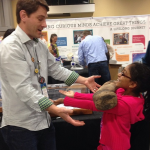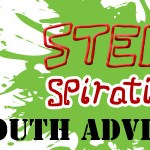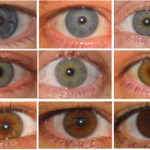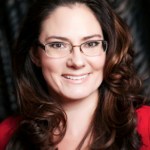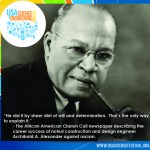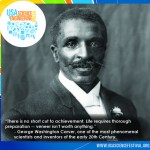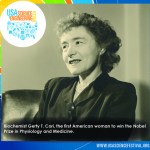Education
Being a cancer surgeon, I realize that my tendency is to view my blogging material through the prism of cancer, particularly breast cancer, my specialty. it's easy to forget that there are diseases every bit as horrible, some arguably even more so than the worst cancer. When I think of such diseases, it's not surprising that amyotropic lateral sclerosis (ALS), commonly known as Lou Gehrig's disease after its most famous victim. It's a progressive degenerative neurologic disease that affects the motor neurons, resulting in progressive muscle weakness throughout the body. Eventually, victims…
That recent study on active learning continues to generate some press, including a new interview with Carl Wieman about why traditional lectures are problematic. Wieman is pretty blunt about his opinions on the subject, which will come as no surprise to people in the AMO physics community...
Anyway, while most of the rest of the academic nation is into final exams and even graduation parties, we still have two more weeks of class after this one, and we're giving an exam tonight in my intro E&M class. Which means I'm still spending a lot of time thinking about this stuff. Some related…
I hadn't really planned on writing again about everyone's favorite conspiracy theorist and promoter of quackery, Mike Adams, at least not so soon after the last time I did it, which was only last week after Adams appeared on Dr. Oz's daytime television show to push his "laboratory." Adams, as you might recall, goes by the Internet moniker the "Health Ranger" (which would really more appropriately be "Health Danger") and is the man responsible for one of the quackiest sites on the Internet, NaturalNews.com, a repository for nearly every form of medical pseudoscience known to humans, mixed in…
Guest Blog By X-STEM Speaker Aaron A. Alford, PhD, MPH, PMP
Hands-on learning and human connections are essential to STEM education. Without exception, all of the scientists that I know were inspired to enter STEM career tracks by someone who helped them make an emotional connection to science and discovery.
As a scientist and an educator, I was absolutely thrilled to be a part of the X-STEM Extreme STEM Symposium and the USA Science & Engineering Festival in Washington, D.C. at the end of April. Both events provided a grand opportunity to interact with students and learners of all types…
It's the season for graduation speeches, and let's be honest, most of them aren't very good. They tend to be very banal and cliched. So let's begin this post with a strong candidate for best graduation speech ever. I am referring to Woody Allen's speech:
More than at any other time in history, mankind faces a crossroads. One path leads to despair and utter hopelessness. The other, to total extinction. Let us pray we have the wisdom to choose correctly.
I speak, by the way, not with any sense of futility, but with a panicky conviction of the absolute meaninglessness of existence which…
A collection of miscellaneous stuff with an academic inclination from the past week or so:
-- We gave an exam last night in introductory E&M (I'm teaching one of five sections this term), so we've spent a lot of time this week on exam review. One thing that might be worth mentioning here is the way I run review sessions, which I don't think is entirely original to me, but which generally gets a "Huh. That's a good idea." when I explain it to other faculty, so wherever I got it from isn't well known.
What I do is: at the start of the review session (either a regular class period given over…
For some reason, I was really beat last night, and, given that this weekend is a holiday for a large proportion of the country (if, perhaps, not for a large proportion of my readership), I don't feel too bad about slacking off a bit by mentioning a couple of short bits that I wanted to blog about but didn't get around to. And what better topic to blog about on Good Friday than the exact opposite of what this Easter season is supposed to be about, namely the behavior of antivaccinationists? I realize it's an easy target, but, hey, I'm tired. Besides, it amuses me, and, as I've said so many…
You could call them child or teen prodigies – wunderkinds, who at remarkable young ages have already begun making their mark upon science and technology as innovators and visionaries. The USA Science & Engineering Festival not only applauds such young achievers, but is recruiting some of the best of them to serve on its new Youth Advisory Board.
The achievements of these recently-appointed board members will not only help us further excite, inspire and reach out to more students during the Festival next week, but will also call attention to the impressive cadre of young talent that is on…
Guest Blog By Festival X-STEM Speaker and Expo Performer Dr. Joe Schwarcz
“Hey, aren’t you somebody?” the teenager queried as I got into the elevator. While I was pondering an appropriate answer to this deeply philosophical question, his crony spilled the beans: "Yeah, he's that guy who talks about chemistry on TV." This was just the ammunition the philosopher needed. "Oh no, we're locked in an elevator with a scientist" he mocked, before volunteering the information that he got about 2% in chemistry in high school, and "that was with cheating."
Sadly, I've heard such comments before. After…
I've lost track of who on social media pointed me to this, but this blog post about testimony to the Michigan Legislature is a brilliant demonstration of what's so difficult about teaching even simple subjects. Deborah Ball, the Dean of the education school at the University of Michigan gives the legislators a simple grading exercise from elementary school math. The video here is worth a watch:
(This also includes one of the greatest failed SNL references ever. It flops badly enough that the guy responsible is nearly as embarrassed as he ought to be...)
The problem she's illustrating is one…
Note: I was busy doing something last night that left me no time to compose any fresh Insolence, which will become apparent by this weekend. In the meantime, however, I'm betting quite a few of you haven't seen this before, and those who have might want to discuss it further in a different environment.
Quackademic medicine.
I love that term, because it succinctly describes the infiltration of pseudoscientific medicine into medical academia. As I've said many times, I wish I had been the one to coin the phrase, but I wasn't. To the best of my ability to determine, I first picked it up from Dr…
Jerry Coyne liked yesterday's post about teaching ID. I do just want to clarify one point, though. Coyne writes:
Jason has a good point. And that point is that although it’s illegal (as well as dereliction of duty) to teach intelligent design creationism in public schools and universities, it is okay to criticize it, for you can criticize ID on the grounds of bad science without bashing religion. And I think Jason’s right, especially given the legal rulings so far on what constitutes an incursion of religion into public schools.
I certainly do think it's a dereliction of duty to teach…
York University mathematician and civil rights activist Lee Lorch died February 28, 2014 at the age of 98.
A few years ago I posted on the 2007 Joint Mathematics Meetings in New Orleans Lee Lorch where Lee was awarded the Yueh-Gin Gung and Charles Y. Hu Award for Distinguished Service to Mathematics.
The citation read:
Lee Lorch's mathematical research has been in the areas of analysis, differential equations, and special functions. His teaching positions have included the City College of New York, Pennsylvania State University, Fisk University, Philander Smith College, the University of…
Imagine that there is a trait observed among people that seems to occur more frequently in some families and not others. One might suspect that the trait is inherited genetically. Imagine researchers looking for the genetic underpinning of this trait and at first, not finding it. What might you conclude? It could be reasonable to conclude that the genetic underpinning of the trait is elusive, perhaps complicated with multiple genes, or that there is a non-genetic component, also not yet identified, that makes finding the genetic component harder. Eventually, you might assume, the gene will be…
By Stacy Jannis
The Kavli Science in Fiction Video Contest challenges Gr 6-12 students to examine the science in fiction, including science fiction movies, TV shows, and games. Our contest advisors include science educators , scientists, and Hollywood scifi visual effects experts. Follow #SciInSciFi on twitter for contest updates.
Joanne Manaster is a faculty lecturer teaching online biology courses for the Master of Science Teaching-Biology program at the School of Integrative Biology at the University of Illinois, and has taught lab courses in Bioengineering and Cell and Developmental…
This week at #scio14, Danielle Lee is leading a discussion on privilege in science. I'd started this post and abandoned it a few weeks back, but I think it speaks to a similar phenomenon as she describes in her post. Low-income students are being lost not only to science, but often to the college experience in general. This is amplified at elite institutions, but even at the public institutions I've worked at, lower income students are at a significant disadvantage when it comes to preparing for any kind of graduate or professional post-bac training.
My first introduction to one of my…
USA Science & Engineering Festival X-STEM Speaker renowned aviator Barrington Irving sums up his current mission as a role model this way: "Kids want to be challenged, but today too many are bored and uninspired. I want to use aviation to excite and empower a new generation to become scientists, engineers, and explorers."
He has a lot to inspire kids about. Born in Jamaica and raised in Miami Florida's inner city, surrounded by crime, poverty, and failing schools, he beat the odds in 2007 when, at the age of 23, he became the youngest person ever (and only African American) to pilot a…
Archibald A. Alexander – Noted Design and Construction Engineer
Best known for designing Washington, DC's Tidal Basin Bridge and Whitehurst Freeway; first black graduate of the University of Iowa's College of Engineering; served as territorial governor of the U.S. Virgin Islands
Growing up in Iowa during the late 1880s, Archibald "Archie" Alexander remembers being warned that engineering was not something he could expect to succeed in as a black man. But he pushed forward anyway, later graduating in 1912 with a bachelor's degree in engineering from the State University of Iowa (now the…
George Washington Carver – Botanist, Inventor and Educator
One of the most phenomenal scientists of the early 20th Century. He found amazing uses for the peanut, sweet potato and soy bean that continue to enrich our lives. And against racial obstacles, his achievements paved the way for generations of young African American scientists
The ultimate agricultural botanist and chemist, George Washington Carver, from his early years, was known for his curiosity and his "burning zeal to know everything", especially about nature. He soon became fascinated with how to use botany and other sciences…
Gerty Theresa Cori -- Biochemist
Often considered one of the greatest women scientists of the 20th century. The first American woman to win the Nobel Prize in Physiology and Medicine; known for her discovery (with husband Carl Cori and physiologist Bernardo Houssay) of how the body metabolizes glucose
Born Gerty Theresa Radnitz in 1896 in Prague (then in the Austro-Hungarian Empire, now the Czech Republic), Gerty grew up at a time when women were marginalized in science and allowed few educational opportunities. However, at age sixteen and influenced by her uncle, (who was a professor of…
